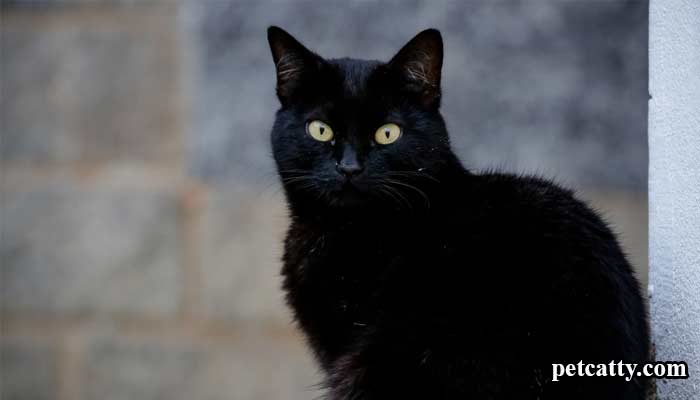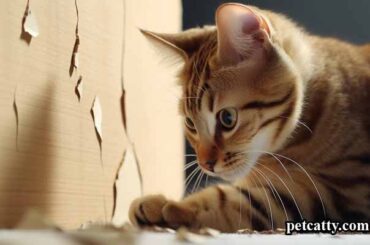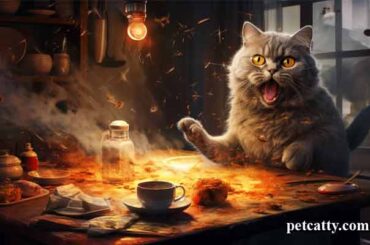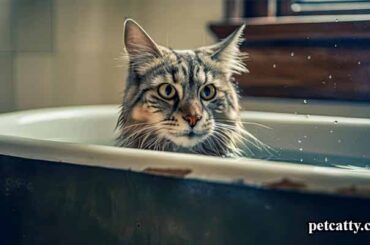Welcome to the world of black cats, where superstitions and folklore have woven a tapestry of mystique around these beautiful feline creatures. In this article, we aim to unravel the age-old question: Are black cats good or bad luck? Our journey will take us through the annals of history, across diverse cultures, and into the heart of modern beliefs to provide you with a well-structured content flow that adds value to your understanding.
Table of Contents
- Historical Superstitions
- Are Black Cats Considered Bad Luck?
- What Does Seeing a Black Cat Mean?
- Is a black cat good or bad luck astrology
- Do Black Cats Bring Wealth?
- Are Black Cats Good Luck in Japan?
- Is a black cat good or bad luck in america?
- Are black cats good luck in Scotland?
- Black Cats and Halloween Symbols
- Black Cat Myths and Legends
- Conclusion
Historical Superstitions
Throughout history, black cats have been shrouded in superstition. The mere sight of one could send shivers down the spine, or it might be seen as a harbinger of doom. Let’s delve into the origins of these superstitions and how they’ve evolved over time.
The Middle Ages were a time of great uncertainty, and black cats often became scapegoats for the unknown. Their sleek, dark appearance made them an easy target for suspicion. In the minds of many, black cats were inextricably linked to witches and their alleged dark magic. In this era, the presence of a black cat was believed to bring about bad luck and misfortune.
As we travel through history, we’ll uncover the transformation of these superstitions and how black cats have fared as symbols of both good and bad luck.
Are Black Cats Considered Bad Luck?
The belief that black cats bring bad luck has been deeply ingrained in various cultures for centuries. While times have changed and rationality has become more prevalent, many people still hold strong convictions about black cats being harbingers of misfortune.
These superstitions vary across regions, with some areas showing a stronger belief in the bad luck associated with black cats. In many Western cultures, the perception of black cats as bringers of bad luck is more widespread. This has contributed to the reluctance to adopt or even the avoidance of black cats.
However, it’s essential to note that these beliefs are based on superstition rather than any concrete evidence. The fur color of a cat has no actual bearing on luck or fate.
What Does Seeing a Black Cat Mean?
The sight of a black cat can invoke mixed emotions, depending on one’s cultural and personal beliefs. Superstitions often assign meanings to such encounters. Let’s explore these interpretations:
- Bad Omen: For some, crossing paths with a black cat is viewed as a bad omen, signaling potential misfortune or challenges ahead.
- Protection: On the flip side, others believe that seeing a black cat can be a sign of protection. This interpretation is particularly prominent in Japanese culture.
- Warnings: In certain folklore, a black cat’s appearance may be seen as a warning, urging one to be cautious and alert.
These varied interpretations demonstrate the complex and multifaceted nature of superstitions surrounding black cats.
Is a black cat good or bad luck astrology
In astrology, the concept of black cats and their association with good or bad luck is not a direct or widely recognized aspect of astrological beliefs. Astrology primarily deals with the study of celestial bodies and their influence on human behavior and events. While astrology may encompass various beliefs and superstitions, the idea of black cats specifically being linked to good or bad luck is not a central theme in astrological practices.
Astrology typically focuses on the positions and movements of planets, stars, and other celestial bodies in relation to a person’s birth chart to offer insights into their personality, behavior, and life events. These interpretations are based on the positions of celestial bodies at the time of a person’s birth.
The belief in black cats bringing good or bad luck is rooted more in superstition, folklore, and cultural traditions than in astrology. Astrology tends to concentrate on broader cosmic influences and the alignment of celestial bodies rather than specific creatures or animals.
That said, astrology is a diverse field with many branches and interpretations, and individual astrologers may incorporate a wide range of beliefs and symbols into their practice. However, the superstitions surrounding black cats and luck are not a prominent or widely recognized aspect of astrology as a whole.
Do Black Cats Bring Wealth?
While many superstitions paint black cats as bearers of bad luck, there’s an intriguing counter-narrative – the belief that black cats can bring wealth and prosperity. This seemingly paradoxical notion has cultural roots and practical associations.
In some cultures, particularly in parts of the British Isles, it is believed that a black cat’s presence can bring good fortune and wealth to its owner. This belief may have originated from a more practical perspective, as cats were often regarded as valuable protectors of crops, and a healthy cat population would help control vermin that threatened food supplies.
This belief in black cats as symbols of wealth and abundance challenges the notion of universal bad luck. It showcases the diversity of beliefs and the rich tapestry of associations that black cats hold.
Are Black Cats Good Luck in Japan?
In Japan, black cats take on a significantly different role in the realm of superstition. Here, black cats are considered as symbols of good luck and protection.
One of the most well-known symbols is the “Maneki-neko,” a figurine of a cat with an upraised paw, beckoning good fortune. This is often a calico cat, but black cats also have their place in this auspicious tradition. They are believed to ward off evil spirits and bring blessings to their owners.
Japanese folklore portrays black cats as protective entities, guardians of homes and businesses. This positive perception of black cats in Japan stands in contrast to the more negative connotations in Western superstitions.
Is a black cat good or bad luck in america?
In the United States, the belief regarding whether a black cat is considered to bring good or bad luck varies among individuals and regions. The superstitions about black cats in America are rooted in a mix of historical folklore and cultural influences, but they are not universally held beliefs. Here are some key points to consider:
- Historical Superstitions: Historically, black cats have been associated with superstitions and beliefs. In the early American colonies, some people believed that black cats were witches’ familiars or symbols of dark magic, similar to the superstitions in Europe.
- Halloween: Black cats often play a prominent role in Halloween decorations and imagery in the United States. Their association with the spooky and mysterious elements of Halloween has solidified their place in American culture during this season.
- Varied Beliefs: Beliefs about black cats in America are diverse. Some people consider them bad luck, particularly if one crosses their path, while others see them as harmless or even as bringers of good luck.
- Positive Associations: On the flip side, some American cultures and communities view black cats positively. In some Native American traditions, for example, black cats are seen as protectors and guardians. Additionally, black cats are often adopted as pets and beloved members of many households without any superstitious beliefs attached.
- Animal Shelters: To challenge the negative superstitions and promote the adoption of black cats, many animal shelters and organizations run campaigns to emphasize the wonderful qualities of black cats as pets.
In summary, the belief in whether a black cat is considered good or bad luck in America varies from person to person and region to region. While there are historical and cultural influences that have contributed to the superstitions surrounding black cats, these beliefs are not universally held, and many people in the United States see black cats as ordinary and beloved pets.
Are black cats good luck in Scotland?
In Scotland, as in many other parts of the world, the belief about black cats and whether they bring good or bad luck varies among individuals and regions. There are cultural and historical factors that have influenced these beliefs, but they are not universally held. Here’s an overview of the beliefs about black cats in Scotland:
- Historical Superstitions: Like in other parts of Europe, Scotland has a history of associating black cats with superstitions. In the past, black cats were often linked to witches and were believed to be their familiars. This association with witches contributed to the superstition that black cats brought bad luck.
- Varied Beliefs: Beliefs about black cats in Scotland, as in other regions, are diverse. Some people may still hold on to the superstition that black cats are bad luck, particularly if one crosses their path.
- Positive Associations: On the other hand, there are many people in Scotland who do not hold superstitious beliefs about black cats. Black cats are often viewed as ordinary and beloved pets, and their fur color is not a factor in whether they are considered lucky or unlucky.
- Cultural Influences: Superstitions about black cats are influenced by cultural beliefs and historical traditions. Scotland, like other places, has a rich tapestry of folklore and superstitions that have contributed to the perception of black cats.
In summary, whether black cats are considered good luck or bad luck in Scotland, as in other regions, varies from person to person and community to community. While historical superstitions have played a role in shaping beliefs, there are individuals and families in Scotland who love and cherish their black cats without any superstitious concerns.
Black Cats and Halloween Symbols
Black cats have become iconic symbols of Halloween, the season of spookiness and enchantment. Their presence in Halloween folklore is deeply intertwined with notions of witches, magic, and superstitions.
During Halloween, black cats are often associated with witches, who were believed to have the power to transform into these feline creatures. They are seen as companions of witches, and their presence in folklore adds to the eerie and mysterious atmosphere of the season.
The use of black cat imagery as part of Halloween decorations and motifs is common. Their stark contrast to the vibrant oranges and purples of the season contributes to their mystique and makes them a staple in Halloween traditions.
Black Cat Myths and Legends
Myths and legends surrounding black cats are as diverse as the cultures from which they originate. These stories have played a significant role in perpetuating superstitions and shaping our perceptions of black cats.
- Egyptian Mythology: In ancient Egypt, cats were revered, and the goddess Bastet was often depicted with the head of a lioness. This positive association is believed to have influenced perceptions of cats in other cultures.
- The Witch’s Familiar: European folklore often portrayed black cats as witches’ familiars, assisting in their dark magic. In some tales, they were even considered witches themselves.
- Ship’s Cats: Sailors believed that having a black cat on board would bring good luck and protect the ship from storms and bad omens.
These myths and legends highlight the dual nature of black cats, as both harbingers of misfortune and symbols of protection in different contexts.
Conclusion
In conclusion, the belief in black cats bringing either good or bad luck is a reflection of the rich tapestry of human beliefs, cultural diversity, and the power of superstition. Throughout history, black cats have been portrayed as both symbols of protection and omens of misfortune, and these perceptions continue to coexist in our modern world.






